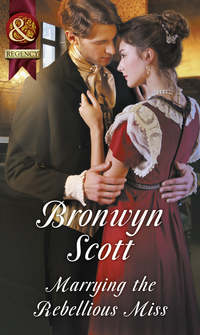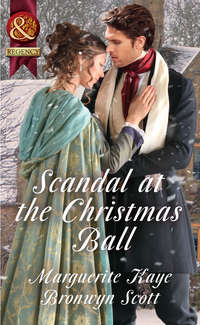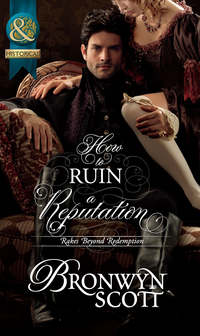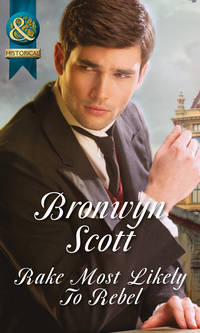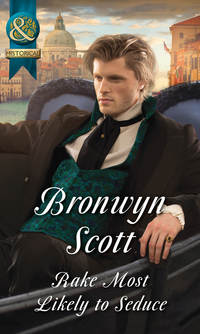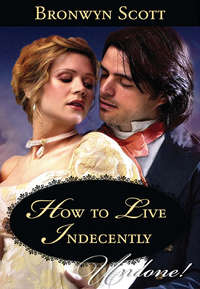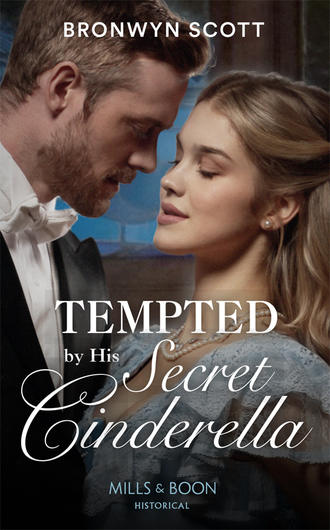
Полная версия
Tempted By His Secret Cinderella
‘I like the sound of that.’ His mother held up the Wedgwood teapot in question. ‘Tea, darling? While you lay out your grand plan?’
‘No, no tea.’ Sutton quickly waved away the pot. He’d had enough tea today to last him all week. ‘Here’s what I am thinking. If my marriage must be a spectacle, I want to make it one worth watching. I control if it becomes a scandal or not. I want to make it a grand event, create the perception of a whirlwind romance, love at first sight.’ But it would be quite the exacting experiment beneath that frothy surface.
His mother smiled. ‘You want to make it a fairy tale. I like the idea. It certainly softens the edge of scandal. You invite all the eligible girls to a house party at the Newmarket estate. Let them have a taste of the luxury that could be theirs. We’ll put out the best china and polish the good silver to impress the mothers. We’ll lay in champagne and French wine to impress the fathers. Hartswood always shows at its best in the summer. The girls can stroll and pose in their pretty dresses for you in the gardens while their fathers fish the river.’
Sutton laughed. ‘You make it sound so easy.’ He wished he had his mother’s confidence when it came to his marriage. Some of the burden eased with the relief of having a partner in this. His mother did not challenge his decision, she simply got behind him and lent her considerable energies. ‘I’m afraid it needs to be a bit more involved than pretty poses in the garden. I don’t want to select a wife based on how she looks in a dress. I tried that once, a deviation from the norm, and a failure of an experiment, if you recall.’ The disaster of Miss Anabeth Morely had been years ago in his youth, but he had no desire to repeat it.
Sutton moved on, refusing to dwell on the memory. ‘We’ll need a full slate of a variety of activities. I want to arrange to have time with each of the girls, to observe them in different settings, with different people, and with me. At the end of the house party, we’ll hold a ball and I will announce my choice at midnight, the perfect ending to the fairy tale we’ll create.’
‘So, the party is to be your microscope? You’ll be putting them under the lens of your scrutiny,’ his mother surmised aptly.
‘Yes. I suppose it is. But I am not the first to use a house party to such ends. There is no scandal in the setting I propose. It’s quite traditional, really.’ And it was efficient. He could gather everyone in a single space for his consideration.
‘A setting and a task torn straight from the pages of a fairy tale,’ his mother agreed. ‘When is the party to be?’
‘In five days. I don’t think I can spare any more time than that if I’m to meet my uncle’s deadline. Can you do it?’ It wasn’t the idea of the party that he doubted, it was the implementation. They had to act quickly, but extravagant entertainments took time. ‘Can you arrange the activities, the details, the guests?’ He was counting on her for this. His days would be taken up with paperwork and other legal details. Even so, he didn’t know the first thing about planning a party of this magnitude.
‘In five days’ time? You want the impossible, but I think we can manage.’ Her eyes danced, energised by the challenge. ‘It’s a mother’s job to know how to arrange these things. If you are set on this, then I will help see it done.’ She smiled softly. ‘My son is getting married. Goodness knows you’ve made me wait long enough. I should start planning the wedding while I’m at it since time is of the essence.’
‘Thank you, Mother.’ He was an only child, out of poor luck in that department. His mother should have had legions of children to command: daughters to march out on the marriage mart, sons to organise into professions. Instead, she’d got him, a gentleman scientist who preferred his camels and horses to the social whirl. His one foray into that world had not recommended it. Some experiments didn’t bear repeating.
There was one last piece to discuss. ‘As to the guests, I am aware the Season is slowing down and so many of the girls are spoken for.’ Sutton thought of the tea heiress, Pavia Honeysett, married now to his friend, Cam Lithgow. She would not have fit his uncle’s criteria but she, a girl of mixed birth and not title, had caught the eye of a marquis before her marriage, general proof that girls had been swept up early this year and the competition for well-born wives was fierce.
‘There’s always someone to marry.’ His mother was unbothered by his concern. ‘People are looking for something new now that Ascot and the Regatta are behind us. I’ll post an announcement in The Times and London will converge on Newmarket in five days.’ She gave him a reassuring smile. ‘Everyone will want to come.’ Her eyes twinkled. ‘And we’ll let them; let them vie for your attention. London will wait upon your favour. You needn’t beg, not with your good looks and the promise of that fortune.’
That’s what he was worried about. He didn’t want to limit his choices to the dregs, to wallflowers and fortune hunters, but he kept his thoughts to himself. There was only so much of the situation he could control, thanks to his uncle’s stratagems. It wasn’t the house party that would draw them, it was the mere presence of the fortune. Whether he was in Newmarket or in London wouldn’t matter. At least in Newmarket he could control who he spent his time with. Here in London he’d be at the mercy of other people’s guest lists. He bent to kiss his mother on the cheek and took his leave. He needed the sanctuary of his club, a drink and time to think. Who would want him, just him, now? Who would even see him, the man, standing there behind the fortune? In that regard, he’d just have to trust to luck that he’d be able to throw the net wide enough. But he was a scientist. Trusting to luck was not something he was used to doing.
* * *
There was a reason for that. Luck often failed and it was failing him spectacularly today. Sutton had barely set foot inside the asylum of his club before he realised his mistake. London had not waited for an announcement in The Times. From the buzz in the common room, it seemed the whole city already knew he had been named heir to Sir Leland Keynes’s fortune. By four o’clock that afternoon, London fully grasped the import of that. The Season now had an eligible parti nonpareil.
Sutton was bombarded with men wanting to shake his hand, some of whom he hadn’t seen since school days, others whom he’d never met at all but who claimed introduction through convoluted connections. Older men wanted to offer condolences on his uncle’s passing, younger men wanted to renew acquaintances or establish them. All of them had sisters, daughters, nieces, cousins, wards or god-daughters. The preponderance of females offered up to him made his earlier observation about the dearth of candidates laughable. Apparently, marriageable females were thick on the ground when one was possessed of a fortune.
But his instant popularity reinforced his earlier worry. He’d become nothing but a placeholder, a gateway to a fortune. Sutton made his way to an empty, isolated chair in the corner and ordered a drink. He didn’t kid himself the privacy of his seat would last long. He was a man no longer, but a thing to be used and manipulated for personal gain, the very reason he’d resisted the idea of marriage for so long. He didn’t want an alliance. He didn’t need an heiress’s money or a debutante’s father’s political connections. He wanted something more.
Not love, necessarily. The idea of love was an illogical concept when it came to the science of successful pairings. Animals didn’t mate for love or for alliances. They mated for strength, for compatibility. That’s what he wanted. Compatibility. Someone who loved animals, who would enjoy working beside him with his camels and his horses, who might enjoy him. Those wishes were now officially relegated to the dustbin of impossibilities.
A pair of young men approached his sanctuary and invaded with oblivious bonhomie, taking advantage of a very casual connection. They’d met once or twice at Tattersall’s. ‘Keynes, so good to see you. Dare say we’ll see more of you in London, these days.’
Sutton smiled and shook their hands, wondering just how long it would take them to mention the unattached women in their lives.
‘My sister is with me this Season,’ the first one said, and Sutton restrained the urge to laugh. Of course she was. It had taken the man all of thirty seconds. A record, to be sure. If his uncle wasn’t already dead, Sutton would kill him for this. His uncle had made his life a living hell.
Chapter Three
Bermondsey Street, south-east London—Saturday, July 14th
The fast click of boot heels on the wooden treads of the boarding-house stairs alerted Elidh to her father’s return. From the sound of those clicks, he was excited and in earnest. That worried her. It usually meant he had concocted a new scheme to lift them out of the encroaching poverty of their life. Elidh set aside her mending and steeled herself for whatever came through the door. With her father, one never knew. Sometimes he brought home people, sometimes he brought home ideas. Once he’d brought home a monkey. She wished he’d bring home money. They could use some right now. She’d economised all she could and it still wasn’t enough. Not for the first time, she wished her father could be normal, that he would get up in the mornings and go to a clerking job for the Bank of London. A man could make a hundred pounds a year clerking and there was security. A clerk worked for life, until he chose to quit.
Right now a hundred pounds a year sounded like a fortune to her. They could move out of the dingy boarding house, even out of the dockside neighbourhoods, to a cottage, perhaps in Chelsea. They could eat their own meals instead of the general fare served downstairs in the dining room where they ate with the other boarders. But her father wasn’t a clerk. Clerking was beneath him. Just ask him. He was a playwright, the leader of an acting troupe. At least he had been three years ago, when her mother was still alive and every day had been full of adventure.
Her mother was dead now, lost to tuberculosis, and her father might as well be, too, stumbling through life without his wife, his love, his raison d’être. He had moments. Moments when he was inspired to write his next big play. The moments lasted a few days, long enough to conjure hope that this time it might end differently, that he might complete a work, that it might actually be good enough to sell. But it always ended the same way. Crumpled papers on the floor, a mad rage in which he declared his latest work was rubbish and he vowed never to write again. But that had to change. They’d been close to broke before, but nothing like this. There’d always been something to sell, something to be done to get them by. This time, Elidh wasn’t sure anything would save them. There wasn’t anything left to pawn, no prospects left to hope on that a play might be finished, that a patron might emerge to purchase it. She had counted their funds this morning. Counting her recent payment from a dress shop that gave her piecework during the Season, they had enough to pay the rent for another month, but that was an unreliable source, petering out when the Season ended. Such inconsistency made for long winters. When the money gave out this time, she didn’t know what would happen next.
The door to their rooms crashed open, her father waving a newspaper excitedly in one hand. ‘I’ve found it, Elidh! This will be the making of us!’ He thrust the paper at her. ‘Read!’
Elidh took the newspaper hesitantly. It was fresh, newly printed. She thought of the coin that had been spent on this luxury, precious shillings that could have been hoarded against the inevitable. She scanned the page her father had folded back. Her brow furrowed. It was the society page. Gossip, all of it, most of it about a Sutton Keynes and his newly acquired fortune. The reported amount staggered her. Just moments ago, she’d been thinking a hundred pounds a year would be heavenly. Lucky him. ‘I don’t see what this has to do with us.’ She passed the paper back to her father.
‘Don’t you see, Daughter? The bloke needs to marry, quickly, or his fortune is forfeit. He’s holding a house party to find a bride. Anyone is welcome.’
A tremor of angst rippled through Elidh. What was he planning? Her father couldn’t possibly be thinking of going? Of passing her off as bride material? Had he looked at her recently? She was plain: blonde hair, nondescript eyes that vacillated between hazel and brown. The most interesting thing about her was her name. A man who could pick anyone would definitely not choose her. He probably wouldn’t even notice her. She took back the newspaper, scanning it once more. ‘Anyone who fits the standards, Father,’ she corrected, feeling more confident she could scrap his airy plans. ‘He needs a woman with a title.’ There was nothing her father could do about that. There wasn’t a title anywhere in their family tree. He was a playwright, her mother an actress.
‘Then we’ll make one.’ Her father turned about the room, dancing with his imagination. He snapped his fingers, inspiration finding him. ‘I know—you will be an Italian principessa! Where is my map of Italy?’ He opened one of the trunks crowded into their small space, doubling as storage and furniture. The scent of cedar filled the air as he rummaged. ‘Ah, here it is.’ He shut the lid and unrolled the map, reaching for a mug and a plate to anchor the sides.
‘Father, what are you doing?’ Elidh crossed the room cautiously, fearfully even. She hoped she hadn’t understood him aright. ‘I can’t be an Italian principessa.’ Surely he wasn’t thinking they’d impersonate royalty?
His finger stopped at a spot of the map. ‘There—Fossano. You can be the Principessa of Fossano. Now, let me see. You need a name.’ He thought for a moment. ‘Chiara di Fossano. Principessa Chiara Balare di Fossano. I think that has a nice ring to it.’
Elidh grabbed for the map and rolled it up in a fury. ‘Stop! This is nonsense. You want me to impersonate an Italian princess?’ There’d been schemes before, little scams on the road when the troupe had been short on coin, but nothing like this. This was madness even for him.
‘It’s not really impersonation, Elidh. I don’t think Chiara Balare actually exists,’ her father reasoned as if creating a fiction was somehow better than pretending to be someone else.
‘That’s not the point.’ Elidh lifted the trunk and put the map away. She wished she could put her father’s ideas away as easily.
‘What is the point, my dear? This man needs a wife to claim his fortune and we need a fortune.’ For a moment, the light left her father’s dark eyes. They were sober and sad. ‘Don’t you think I know how close we are to the edge? This time, we might very well fall off.’ He took her hands and turned them over, surveying her palms. ‘Thank goodness you haven’t stooped to doing other people’s laundry. Your hands aren’t ruined. It would give you away immediately.’
Elidh sighed, summoning her patience. How like her father. Serious one minute and back to his schemes the next. It had been an enchanting quality in her childhood. It had made every day part-adventure, part-fairy tale. Her world had been magical. It wasn’t any more. The enchantment had worn off long ago, leaving the realities of poverty and hopelessness in its wake. It was up to her to be the voice of reason. She took her father’s hands and led him to a trunk. ‘We have to think about this logically. To start, the premise is madness. You want us to infiltrate a party for nobles and impersonate Italian royalty.’ Couldn’t he hear the preposterousness of his own suggestion? What he proposed was impossible.
‘We’ve done such things before, Elidh,’ her father chided as if she was somehow in the wrong. ‘Do you remember the time your mother and I pretended to be an English lord and lady on a Grand Tour whose carriage had broken down?’
‘Yes, of course I remember,’ Elidh cut him off swiftly with a polite smile. If he got to talking about the old times, there’d be no reasoning with him. ‘But that was different. That was just for one night and it was for a free meal.’ Her father had promised to pay once their luggage had been retrieved, which it never was, and they’d scampered out of the inn before dawn to avoid detection. ‘This is about trapping a man into marriage.’ There were so many things wrong with the idea, she couldn’t begin to put them into words. She began with the most obvious. ‘He’ll be swarmed by women who are actually eligible for the honour. The odds are firmly against us, even if we were legitimately titled. We can’t risk so much on a gamble we have no hope of winning. He wouldn’t look twice at me and, if he did, he’d look straight through me and know. I haven’t the demeanour.’
‘The demeanour, bah! Do you remember when we toured Italy, Daughter? We played all the places—Naples, Florence, Rome, Turin, Milan.’ She didn’t have the heart to correct him. They had played those places. But not on the big city stages. The troupe had roamed in their caravan through the countryside, playing for various conti and duchi at their summer villas.
‘I remember.’ She remembered the warm nights, the lights in the darkness, the food, the wine. Her mother’s laughter as she charmed the noblemen. Those were good times when she was innocent and thought they were untouchable. She wasn’t so innocent any more.
‘You spent the summer in Italy with nobles, you were sixteen then. You managed beautifully. It will come back to you and, if you make a mistake, you shrug and you say “it is different in Italy.” Being foreign will cover a multitude of sins.’
‘But not a lack of clothing.’ Even if she could pull off the mannerisms, her wardrobe would give her away.
‘Nonsense. We have your mother’s costumes.’ Her father rose and moved about the room, flipping open trunks as he went, pulling out gown after gown in a whirlwind of silks and satins emerging from their tissue wrappings until the little room was a harem of colours, rich and lush, at odds with the grey pallor of the walls. ‘This one should do for an evening gown, there used to be a tiara that went with it.’ He rummaged deep into the trunks. Out came the velvet sacks of paste jewels and headpieces. They winked and twinkled in the gloom, looking exquisite at a distance. Looking real. ‘Rosie can help you alter them. She is still in Upper Clapton living with a sister. She can help us with costumes and maid duties. She played one often enough on stage, she should be an expert.’ Rosie had been her mother’s dresser and had played a maid both off and on stage.
Elidh was truly worried now. If her father was willing to alter her mother’s sacred costumes, he must be desperate indeed, all that more committed to his latest scheme. When he had an idea, he clung to it with tenacity. It would make her job of persuading him that much harder. ‘Father,’ she warned, ‘we’ll never get away with it.’ Perhaps the best way to reason with him was to play along, to pose obstacles carefully veiled as questions. ‘I don’t speak Italian, not much of it anyway.’
‘No one else does either. They will compliment you on your English. Your accent was flawless when you played Juliet on stage in Tuscany that one summer,’ her father said encouragingly, his eyes lighting again as he thought of the past. He held out his arms in an expansive gesture and turned about the room. ‘Everything we need is here. We have all of your mother’s costumes and our own ingenuity.’
Elidh tried one last time. ‘Even if you are right, it’s too much to risk on the hopes he’ll look my way.’
Her father gave a nod and tapped a knowing finger to his temple. ‘There’s more than one way to win at this. We’re not going solely for the young, rich eligible parti. That would be far too foolish. We will also be pursuing a patron. This party will gather the right sort of men I need access to in order to sell my play. If an Italian prince can convince them he’s found an Englishman to rival Shakespeare, they’ll listen.’
‘But you don’t have a play,’ Elidh put in bluntly. This was getting crazier by the moment.
‘Yes, I do. Nothing new, mind you, but I’ve given an old play a new title. It’s been years since it was out and it was only performed on the Continent. I’ve been thinking I simply haven’t had the chance to meet the right patron. After all, what sort of men buy plays in Bermondsey Street? My plan’s not so risky now, is it? There’s money to be made in the short term if nothing else, perhaps at cards if no one buys a play. I can wager some of our “jewels” for a stake.’
Dear heavens. Elidh wanted to reel and she was sitting down. Impersonating royalty, crashing an elite party, trying to court a wealthy man, trying to snare a patron, all the while fleecing people with the lure of false jewels on the side. Worst, her father was entirely convinced of his plan’s merits. She could see it in his eyes. Elidh tried a new strategy. If she couldn’t persuade him it was impossible to crash the party, perhaps she could persuade him about the dubious merits of actually succeeding. Success was not without consequences.
‘It’s mad genius to be sure, Father,’ she said sweetly. ‘Have you thought what happens, though, if we succeed? I would be trapping a man into marriage.’ Her father was a romantic at heart. He’d loved her mother deeply—surely such sentiment would work against him here?
‘Trapping him? It would hardly be that,’ he scoffed. ‘Being alone with a man in a garden with the sole intention of being caught kissing him is a trap. But when a man invites women to his home for the express and overt purpose of taking a wife, that is not a trap any more than the entire Season in London is a trap. Society doesn’t call it the Marriage Trap, they call it the Marriage Mart. This is no different.’ He wagged a finger at her. ‘And we are no different, miss, than anyone else attending the party.’ He talked as if going was a foregone conclusion.
‘We’d be impersonating royalty,’ Elidh reminded him once again. It was so easy to overlook that one detail amid all the madness surrounding it.
‘If you think anyone going to the party is really being themselves, you’re more naive than I thought.’ Her father frowned. ‘Those guests might bring their own names, but they’ll be impersonating their better selves and leaving their real selves at home. Those sorts always do.’
‘Then I pity this poor Sutton Keynes,’ Elidh said defiantly. ‘He has to choose from a room full of frauds and that’s no choice at all. If he chose me, I’d be no different than them, a false front for someone he doesn’t really know.’
‘You see!’ her father crowed. ‘No different. That’s what I’ve been saying. We’re just levelling the playing pitch. We’d be no different than anyone else there.’
‘If you’re right, he’ll fall in love with a princess.’
‘If I’m right, he’ll fall in love with you.’
Elidh studied the newspaper. ‘If you’re right, I’ll cost him his fortune. He would hate me for it. Saving his fortune is the whole motive behind his party.’ All the more reason her father’s idea was the height of madness. This Sutton Keynes couldn’t afford her.
Her father’s features softened and he looked at her gently. ‘A man who chooses money over my daughter isn’t the right man for her. It’s the classic quandary, isn’t it? Love or money? It’s the stuff playwrights dream of.’ Her father sighed happily, already imagining a hundred plots he would never write.
Long shadows filled the room. Elidh moved to light their candle stubs. She stopped to open the window and put out a dusting of breadcrumbs for the birds who gathered on the little sill. If she didn’t go with him, she feared he’d go alone and goodness knew the trouble he’d get into without her.
‘What’s the worst that can happen if we try?’ he cajoled as she worked about the room.
Elidh paused and looked up from the candles. ‘We end up in Newgate? Fraud is a crime.’ They’d be committing it on so many levels.
Her father looked thoughtful, hands folded across his stomach. She thought she might have reached him at last. ‘We might end up there or somewhere like it anyway if we do nothing. If we stay the course, we are certainly doomed, Daughter, for the workhouse, for the streets.’ He shook his head. ‘We have nothing to lose as it is. We have to try. It’s all we have left. Your mother would expect it of us. She wouldn’t want us to give up.’



